| |  | | | This issue of the RCC Campus Dispatch marks Black History Month and begins with a focus on environmental justice and racism, including renewed bomb threats at the nation’s Historically Black Colleges and Universities (HBCU’s). The RCC also is opening applications for twenty-five RCC Fellowships for 2022-2023 with an emphasis on environmental justice. Thanks to generous donors, that is double the number of this year’s dozen amazing RCC Fellows. We hope you will help us find, select, and support our most diverse, talented and committed cohort of campus environmental leaders ever. As the spring semester swings into high gear, despite the COVID omicron variant and backlash to campus initiatives on race, some version of traditional campus life, with strong civic engagement, is starting to return. The new semester beckons hope and a belief in what could be possible. In this February issue of the Campus Dispatch, you’ll find stories filled with hope, stories of students, activists, and faculty members leading in efforts to build a more sustainable, equitable, and just world. | | | | | | | | At Least Six Historically Black Colleges and Universities Receive Bomb Threats At least six historically Black colleges and universities received bomb threats early Monday, prompting campus closures and investigations. Howard University in D.C.; Bowie State University in Bowie, Md.; Delaware State University in Dover; Bethune-Cookman University in Daytona Beach, Fla.; Albany State University in Albany, Ga.; and Southern University and A&M College in Baton Rouge received reports of bomb threats throughout Monday morning, according to statements from the schools and local law enforcement. The schools had all received all-clear notices by late Monday afternoon. | | | | | | Report: HBCU Students Struggle With Food and Housing A new survey of nearly 5,000 students at historically Black colleges and universities found that they faced food shortages and unstable housing and experienced homelessness during 2019–20. Students at historically Black colleges and universities experience high rates of food and housing insecurity, according to a new report released by the Hope Center for College, Community, and Justice. The report is the first from the center specifically focused on the needs of HBCU students and is the driving force behind a new initiative to help 10 HBCUs develop and fund supports for their students. | | | | | | | | JEDI is Trending in Higher Education. But HBCUs Have Modeled it all Along Systemic racism and its role in the financial strangulation of many HBCUs has finally been exposed as a prominent thorn of injustice in America’s higher education system. Due to long-standing inequities and discriminatory funding practices, HBCUs have been left far behind in securing sustainable resources when compared with Predominately White Institutions (PWIs). Ironically, the survival of many HBCUs has been jeopardized by the same systemic racism that other colleges and universities are claiming to confront through diversity, equity, inclusion, and justice (JEDI) initiatives. | | | | | | People of Color Breathe More Polluted Air, Regardless of Income Throughout the continental United States, people of color are more likely to be exposed to air pollution than white people, according to a study published Wednesday in the journal Environmental Health Perspectives. Researchers from the University of Washington explored racial and ethnic disparities by comparing air-pollution levels to census data from 1990, 2000 and 2010. That data included information about income status. Focusing on six major air pollutants, the team’s findings revealed that people of color are, on average, more likely to breathe in polluted air, regardless of income. | | | | | | The EPA is Tackling Pollution in ‘Cancer Alley’ Better air monitoring is coming to the Gulf, along with a crackdown on polluters. Residents of Louisiana’s “Cancer Alley,” an industrial corridor along the Mississippi River, have long been saddled with pollution from chemical plants and oil and gas refineries. Two months after visiting the area on a “Journey for Justice” tour, Environmental Protection Agency Administrator Michael Regan announced plans on Wednesday to better monitor air pollution along the 80-mile stretch in Louisiana. | | | | | | Climate Disasters Have a Devastating Effect on US Students The GAO found that two-thirds of all public school students lived in counties that experienced major disasters from 2017 to 2019. The most vulnerable Americans bear the brunt of this disruption: According to a new federal government report, U.S. public school districts that have been hit by climate disasters have higher rates of students experiencing social vulnerabilities such as housing instability and food insecurity. | | | | | | | | The Rachel Carson Council is pleased to announce that the Rachel Carson Council Fellowship Program is now accepting applications for the academic year 2022 - 2023. The RCC Fellowship Program will select 25 environmental leaders from colleges and universities across the nation. To apply to the program, students propose their own projects that are focused on sustainability and environmental justice to be carried out on their campuses and in their communities. Former fellows have run projects ranging from divestment campaigns to podcasts on environmental justice issues and campaigns for renewable energy infrastructure on their campuses. Learn more about our current RCC Fellows here. Fellowships are for the academic year 2022-2023 and provide $2,000 for current undergraduates (or master’s level graduate students) to carry out climate and environmental justice projects and campaigns for the RCC from their respective campuses. In July, those selected as RCC Fellows will travel to Washington DC to be in residence for the five-day RCC American Environmental Leadership Institute (AELI) at the Rockwood Manor Retreat Center adjacent to the C&O Canal National Park. Fellows will further develop their writing, organizing, and advocacy skills and begin plans for their projects and campaigns for the coming year. Faculty for the AELI will include RCC staff and some members of the RCC National Advisory Council [LINK] Throughout the academic year, RCC Fellows will receive mentorship from RCC staff, access to the Advisory Council, and the opportunity to publish. Find the application for the Fellowship program here. Application Deadline is April 1st | |  | | | What Does Environmental Racism Look Like? 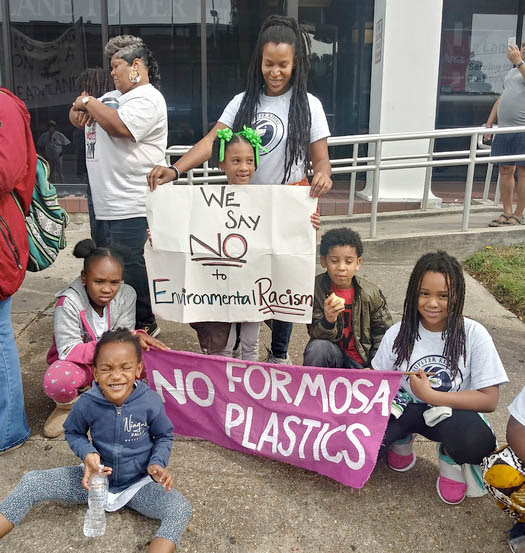 Outside the office doors of Governor John Bel Edwards, most members of the Coalition Against Death Alley (CADA) were sitting down in chairs and on the cold marble floor. But Pat Bryant was pacing back and forth singing the same songs that he did as a child during the Civil Rights movement. The swell of voices grew, and echoed through the cavernous chamber, bouncing from wall to wall—the notes like falling dominoes, gathering momentum. As he paced back and forth across the lobby, he made eye contact with the members of CADA, bystanders, and Edwards’ secretary. Security seemed at a loss for what to do, and some of the members took out their phones to record the singing—this didn’t make it any less profound, their voices needed to be heard. Outside the office doors of Governor John Bel Edwards, most members of the Coalition Against Death Alley (CADA) were sitting down in chairs and on the cold marble floor. But Pat Bryant was pacing back and forth singing the same songs that he did as a child during the Civil Rights movement. The swell of voices grew, and echoed through the cavernous chamber, bouncing from wall to wall—the notes like falling dominoes, gathering momentum. As he paced back and forth across the lobby, he made eye contact with the members of CADA, bystanders, and Edwards’ secretary. Security seemed at a loss for what to do, and some of the members took out their phones to record the singing—this didn’t make it any less profound, their voices needed to be heard.
CADA held the sit-in during the Summer of 2019 in Baton Rouge, Louisiana at the end of a long week of demonstrations. In front of government buildings, along highways, and through city streets, the group carried signs, confronting companies like Formosa or Dupont, which produce plastics and other petrochemical products. If the name Death Alley doesn’t ring a bell, it was formerly called Cancer Alley; The name change reflects the residents’ acknowledgement of other public health crises caused by nearby polluters. Death Alley is the area along the Mississippi River which houses 25% of the United States’ petrochemical production. Its cancer rates are fifty times the national average, and there are substantial rates of auto-immune disorders in the area. Read more 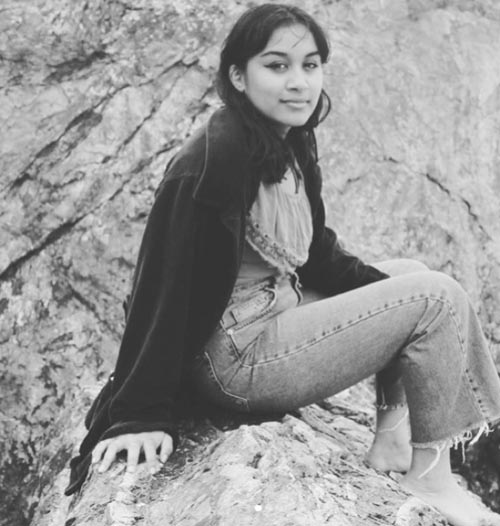 RCC Fellow — Yasmeen Mir — University of Missouri RCC Fellow — Yasmeen Mir — University of Missouri
Yasmeen Mir is a senior at the University of Missouri Columbia. With previous experience in journalism and a current major in Anthropology, she seeks to take an interdisciplinary approach to environmental justice. | | | | Chicago’s Closest Cancer Hotspot is a Nearby Suburb 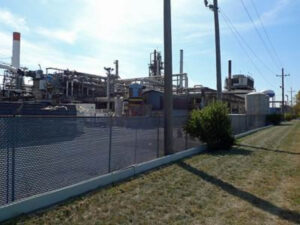 Less than a mile away from Drexel Elementary School is the biggest cancer-causing hotspot in the Chicago area. But it’s not located in the city. Instead, it’s in a nearby suburb, Cicero, Illinois. Less than a mile away from Drexel Elementary School is the biggest cancer-causing hotspot in the Chicago area. But it’s not located in the city. Instead, it’s in a nearby suburb, Cicero, Illinois.
Recently, the independent investigative journal, ProPublica, published “The Most Detailed Map of Cancer-Causing Industrial Air Pollution in the U.S.” Its interactive map lets you type in any address in the United States and see the nearest cancer hotspot. Surprisingly, in Chicago, the big cancer hotspot is caused by Kopper’s Inc., a global chemical and materials company in the western suburb of Cicero. The cancer risk? It’s 1 in 4,800. That’s more than double (2.1 times) the EPA’s acceptable risk. Kopper’s Inc. contributes nearly 97.5% of the estimated cancer risk in Cicero by emitting known carcinogens, such as polycyclic aromatic compounds, quinoline, naphthalene, and more. These chemicals have been found to cause lung cancer, which has the highest mortality rate in the United States. The factory is also near another elementary school, Columbus West, close to Morton College, a community college founded in 1924, a largely residential area, and, two miles away, Lawndale High School in Chicago proper. Read more 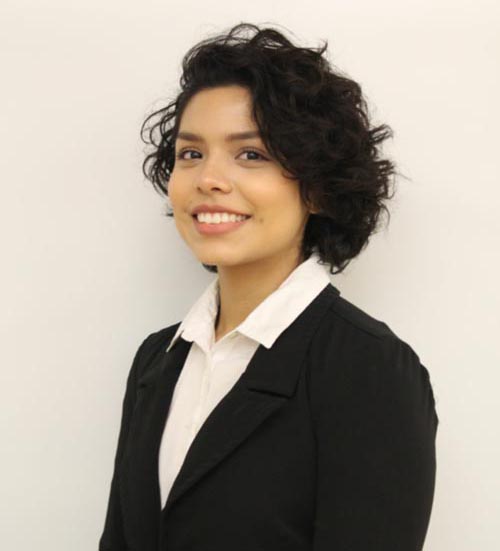 RCC Fellow — Jennifer Coronel — Northwestern University RCC Fellow — Jennifer Coronel — Northwestern University
Jennifer is a recent graduate of the University of Illinois at Urbana-Champaign with a Bachelor of Science in Natural Resource and Environmental Sciences with a concentration in Human Dimensions, along with two minors in Sustainability and Business. She is pursuing her Master of Science in Energy and Sustainability at Northwestern University. | |  | Meet the Scientist Moms Fighting Climate Change For Their Children Joellen Russell likes a big class. The bigger the better, actually, with online sections and huge auditoriums and students swarming her after a lecture – the way they did one Thursday morning this fall after her Intro to Oceanography course at the University of Arizona. “Wait, Dr. Russell, I’m not sure about the homework.” “What about the jet stream?” “Dr. Russell! I saw your sweet family at CVS!” | | | | | | | | College Students Face Many Unnecessary Obstacles to Voting As we have worked to mobilize our peers and our institutions, we have run into countless unnecessary obstacles standing between us and the ballot box, write members of Ivy League Votes. July 2021 marked the 50th anniversary of the ratification of the 26th Amendment, which lowered the voting age from 21 to 18. The amendment was a symbol of trust in young people, as well as a willingness to do whatever it took—including changing the nation’s most sacred document—to encourage their participation in democracy. | | | | | | Solar Farm Groundbreaking Advances Vanderbilt's Large-scale Renewable Energy Partnership A bold partnership that will help Vanderbilt University power its campus entirely through renewable energy is a step further toward that goal with the Jan. 19 groundbreaking for a solar farm in Bedford County, Tennessee. In 2020, Vanderbilt announced two pioneering agreements with the Tennessee Valley Authority and Nashville Electric Service to procure off-site large-scale renewable energy at a solar farm being built by Silicon Ranch Corp. The solar project will connect to the electric grid through the distribution system of the Duck River Electric Membership Corp. | | | | | | | | | | St. John's University Awarded NYSERDA Funds for Clean Energy Projects With a long-standing commitment to reducing its carbon footprint while creating a sustainable and healthy campus environment, St. John’s University was recently awarded $1,792,750 from the New York State Energy Research and Development Authority (NYSERDA) to support several projects focused on reducing energy use and carbon emissions over the next three years. The nearly $1.8 million NYSERDA award will be used to help fund two specific decarbonization projects—chilled water generation for heating, ventilation, and air-conditioning, and domestic hot water generation—at the Queens, NY, campus. | | | | | | | | | | FSU and City of Tallahassee agree to 15-year solar energy pact purchasing solar electricity from local farms An updated agreement between Florida State University and the City of Tallahassee will double the amount of solar-generated electricity the university can draw from the city for the next 15 years. The move marks an extension and expansion of terms FSU agreed to in 2018 as part of its participation in the City of Tallahassee Solar Program and allows the university to tap solar power from two city-owned solar farms. It also fits squarely within the university’s strategic plan to make solar-generated electricity account for 20% of its overall consumption. | | | | | | Saving the Planet By Looking at What's on the Plate at College Campuses Slippery Rock University and nine other campuses in a pilot program to curb carbon footprint The battle to save planet Earth has reached the campus dining hall, where nutrition and environmental science experts are helping create meals for college students that are not only healthy, but easy on the climate. It’s an elaborate dietary endeavor, tied to a youthful consumer market predisposed to weighing the carbon footprint they leave in their daily life. But how will climate-friendly options fare in a population prone to eating on the run? | | | | | | Tulane and Bernhard Announce Partnership to Optimize Energy Infrastructure and Improve Resiliency Bernhard and Tulane University announced a 30-year Energy-as-a-Service partnership that includes large-scale and immediate improvements to campus infrastructure and the construction of a 1-megawatt solar generation facility that will produce 10% of the university’s total electricity needs at its uptown campus. The upfront improvements are expected to significantly reduce Tulane’s cumulative annual Greenhouse Gas (GHG) emissions with the ultimate goal of reaching carbon neutrality by 2050. | | | | | | | | RCC Releases Groundbreaking Divestment Report: Money Talks  Rachel Carson understood that money talks. She would have welcomed the successes of today’s fossil fuel divestment campaigns and their careful dissection of the evasions and prevarications of the oil, gas, and coal industries and the disastrous effect of their products on the planet and on human health. And she would have been heartened by the leading role of young Americans on college campuses in calling these companies to account, in demanding that colleges and universities live up to their professed ideals by eliminating their investments in fossil fuel companies and refusing to accept contributions from them. It is why the Rachel Carson Council, the organization that Carson wanted her friends to initiate to carry on after her death, has published this comprehensive report, Money Talks: Strategy, Success, and Action on Divesting and Reinvesting Funds for Fossil Fuels. Rachel Carson understood that money talks. She would have welcomed the successes of today’s fossil fuel divestment campaigns and their careful dissection of the evasions and prevarications of the oil, gas, and coal industries and the disastrous effect of their products on the planet and on human health. And she would have been heartened by the leading role of young Americans on college campuses in calling these companies to account, in demanding that colleges and universities live up to their professed ideals by eliminating their investments in fossil fuel companies and refusing to accept contributions from them. It is why the Rachel Carson Council, the organization that Carson wanted her friends to initiate to carry on after her death, has published this comprehensive report, Money Talks: Strategy, Success, and Action on Divesting and Reinvesting Funds for Fossil Fuels.
Money Talks is an authoritative, up-to the minute report on the state of the fossil fuel divestment movement in the United States and lifts up the contributions of those who have built it. It is designed to educate faculty, staff, students, and administrators on the power of divestment and reinvestment, share stories from successful campaigns, and give campus advocates the tools to make divestment a reality on campus. Get a free copy of the report here. | | | | The Oil Industry Is Terrified of College Kids Students helped crush Apartheid. Now they’re using the same tactics against fossil fuels. Harvard University’s September decision to stop investing in fossil fuel companies, and to let its current investments in the sector expire without renewal, was widely hailed as one of the biggest climate victories in recent history. And for good reason—it was the most significant win yet for the climate divestment movement, a decade-old initiative that’s applied a popular anti-apartheid activist tactic to get colleges, banks, charitable foundations, and religious organizations to stop funding oil and gas firms. | | | | | | NPR Life Kit: How Ethical Investing Works Ethical investing is popular with many Americans. But what is it exactly? NPR's Life Kit it breaks down. This is the time of year when a lot of people say they're going to focus on their finances, so we want to talk about so-called ethical investing. That's a way to put your money where your morals are, and it's taken off. A 2020 report found that one-third of all U.S. assets are now invested in companies that say they're operating in an ethical and environmentally sustainable way. | | | | | | Divestment Campaigns — and Reinvestment Efforts — Gain Strength as Climate Change Intensifies The global motion to sell off fossil fuel assets has picked up major speed this year. With over 80 percent of the world’s population experiencing extreme weather linked to climate change, university endowments have become a focal point for students, faculty, and community members eager to snuff out their schools’ support for the fossil fuel companies most responsible for fueling the climate crisis. | | | | | | Big Numbers - Dollars and institutions - Behind Divestments From Fossil Fuels Experts voice pro and con attitudes about fossil fuel divestments. But what they don’t debate are the big numbers of dollars and investors in the mix. About $39 trillion – that’s trillion, with a T – is the total some 1,500 institutions are planning to divest from funds in fossil fuels. And those numbers are growing. The Global Fossil Fuel Divestment Commitments Database, maintained by two nonprofit divestiture advocacy groups, Stand.earth and 350.org, tracks institutions that have pledged to divest from fossil fuels fully, partially, or certain subsets, such as coal. | | | | | | | | 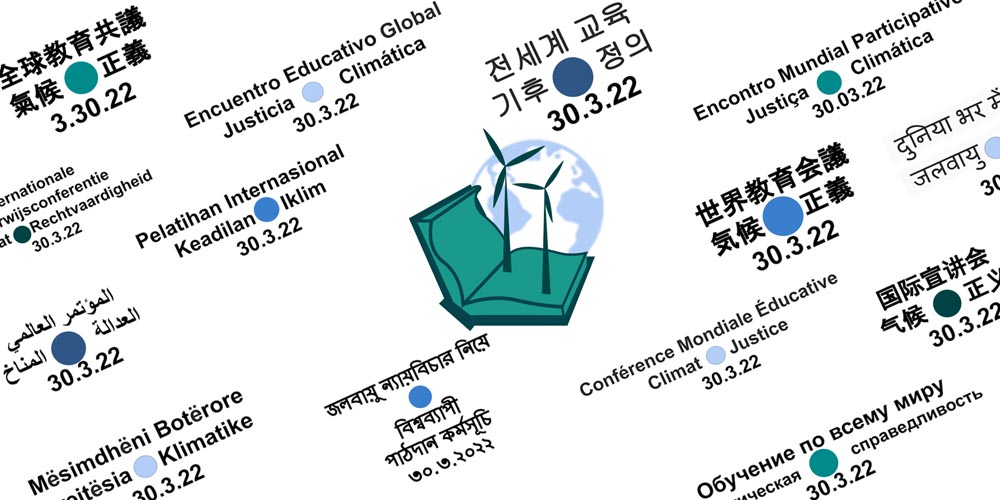 On March 30, 2022, help mobilize 1000 communities, in-person and online, in a one-day WORLDWIDE Teach-In on climate solutions and justice. We have easy-to-organize models for colleges, universities, high schools/middle schools, K-6 and faith communities. Engage hundreds of members of your campus and community in critical dialogue on just climate solutions. Join a 30-minute virtual information session to learn how to easily organize a teach-in on your campus or at your organization. | | | | | | | | | |  GLOBAL HEALTH INTERNSHIP PROGRAM
FOR MINORITY STUDENTS: APPLY NOW GLOBAL HEALTH DISPARITIES RESEARCH TRAINING PROGRAM 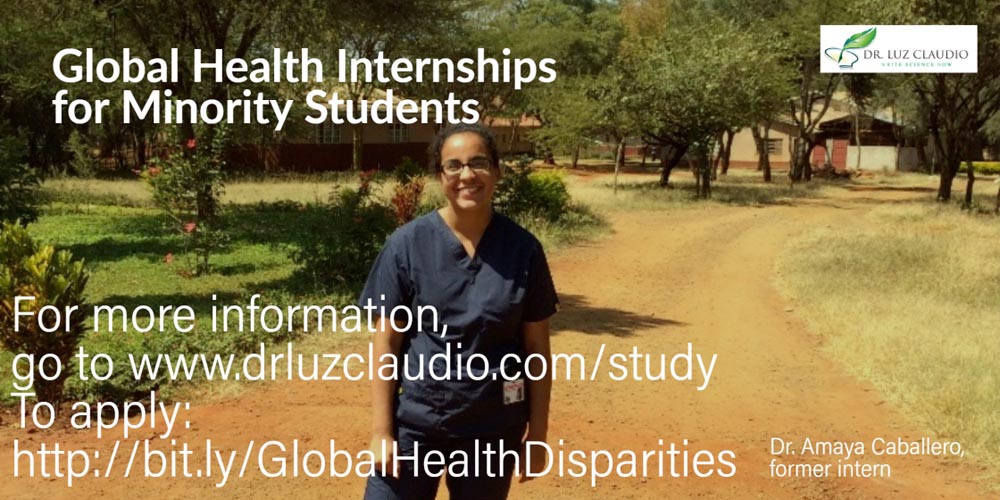 The Mount Sinai Global Health Disparities Research Training Program is now accepting applications from current and recently graduated masters, doctoral, and post-doctoral students for a 12-week international research training program (June-August, 2022). Selected candidates will receive one week of orientation in New York in early June, followed by 11 weeks working with a research mentor in Brazil, Puerto Rico, or Costa Rica (sites may vary due to COVID-19 pandemic and may include a virtual component). Benefits: ? Travel and Housing for the entire 12-week program, ? Emergency Health Insurance while in your host country ? Funds for supporting the research and Monthly Stipend between $1000 - $1900 depending on training level. For more information and to apply online: https://www.drluzclaudio.com/global-health-internships.html Deadline for Applications: March 31, 2022 | | | | | | | | Plan Your 2022-2023 Campus Events with RCC now! 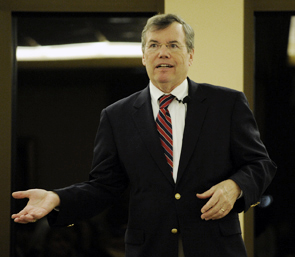 For the first time in over a year, RCC President & CEO, Dr. Robert K. Musil, a national leader in climate change, environmental justice and health is again available to book for in-person campus speaking events! Musil has been called “informative, challenging and inspirational all at once.” He is “motivational” with “intellectual depth” and “extraordinary impact.” For the first time in over a year, RCC President & CEO, Dr. Robert K. Musil, a national leader in climate change, environmental justice and health is again available to book for in-person campus speaking events! Musil has been called “informative, challenging and inspirational all at once.” He is “motivational” with “intellectual depth” and “extraordinary impact.”
Dr. Musil is available for campus lectures and visits involving classes, meetings with campus and community groups, consultations with faculty and administrators, or for Earth Day, Commencement, and other special events. Stays range from one to three days. Reduced fees are in place for 2022-2023 and can be designed to meet reduced budgets. To arrange a campus visit with Dr. Musil, contact the RCC President’s Office at office@rachelcarsoncouncil.org or call 301-214-2400. Dr. Musil is also available to CIC members (Council of Independent Colleges) as a CIC Visiting Fellow (formerly Woodrow Wilson) for stays of a week through the CIC Visiting Fellows Program here.  The RCC also offers talks, classes, and workshops on student engagement, activism, sustainability, and the RCC Fellowship program with Associate Director Mackay Pierce. The RCC also offers talks, classes, and workshops on student engagement, activism, sustainability, and the RCC Fellowship program with Associate Director Mackay Pierce.
To arrange a visit, contact our Associate Director Mackay Pierce at: mackay@rachelcarsoncouncil.org | | | | | |  The Rachel Carson Council Depends on Tax-deductible Gifts From Concerned Individuals Like You. Please Help If You can. The Rachel Carson Council Depends on Tax-deductible Gifts From Concerned Individuals Like You. Please Help If You can. | | | |  Sign Up Here to Receive the RCC E-News and Other RCC Newsletters, Information and Alerts. Sign Up Here to Receive the RCC E-News and Other RCC Newsletters, Information and Alerts. | | | | | | | | | | | |